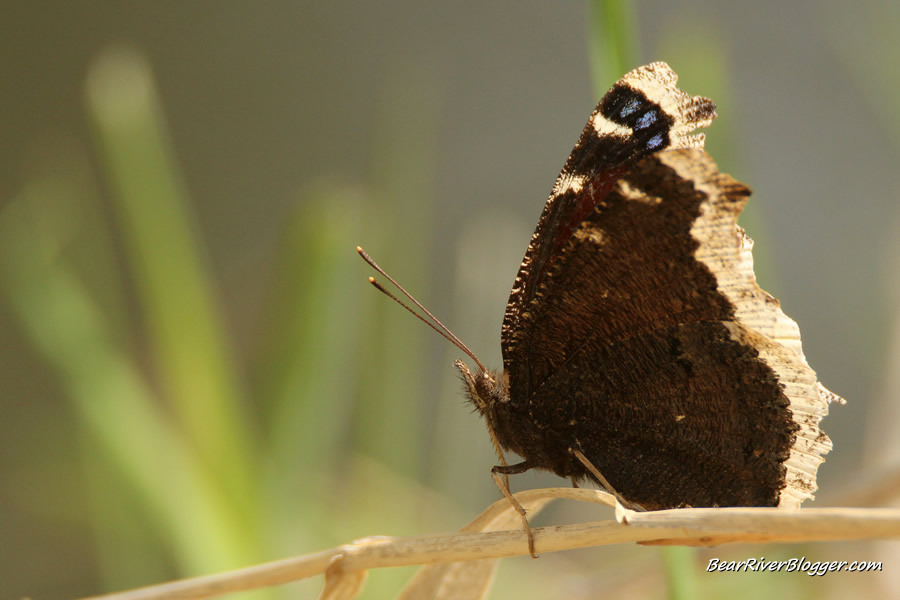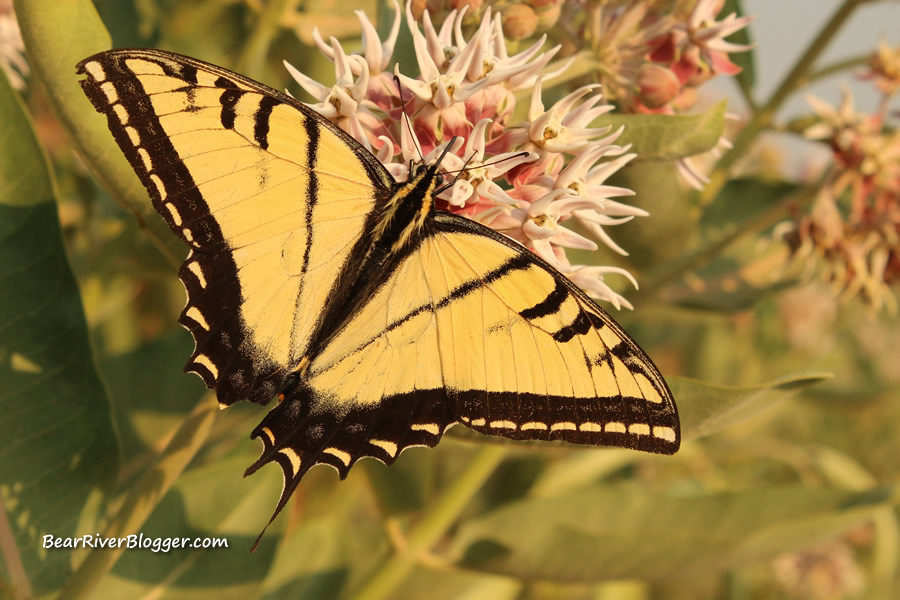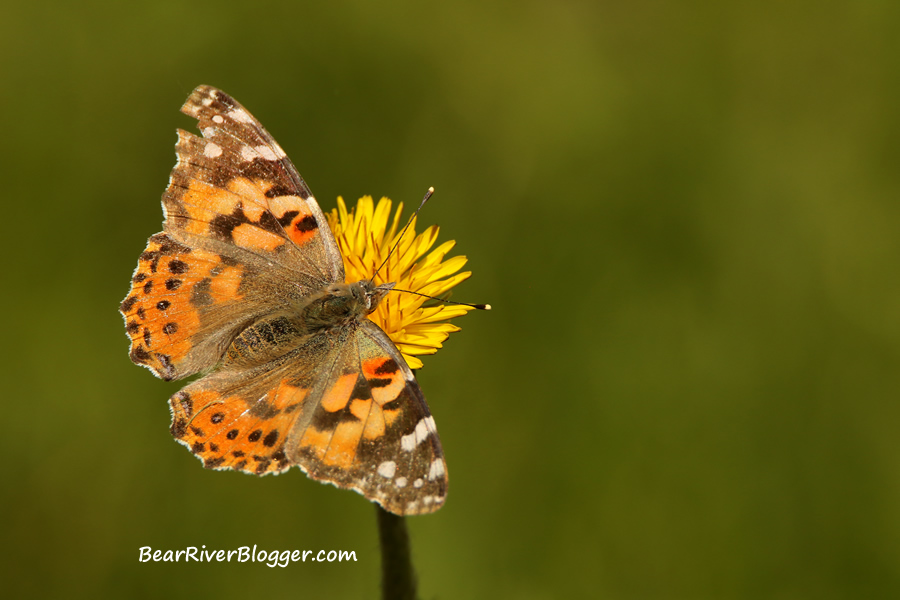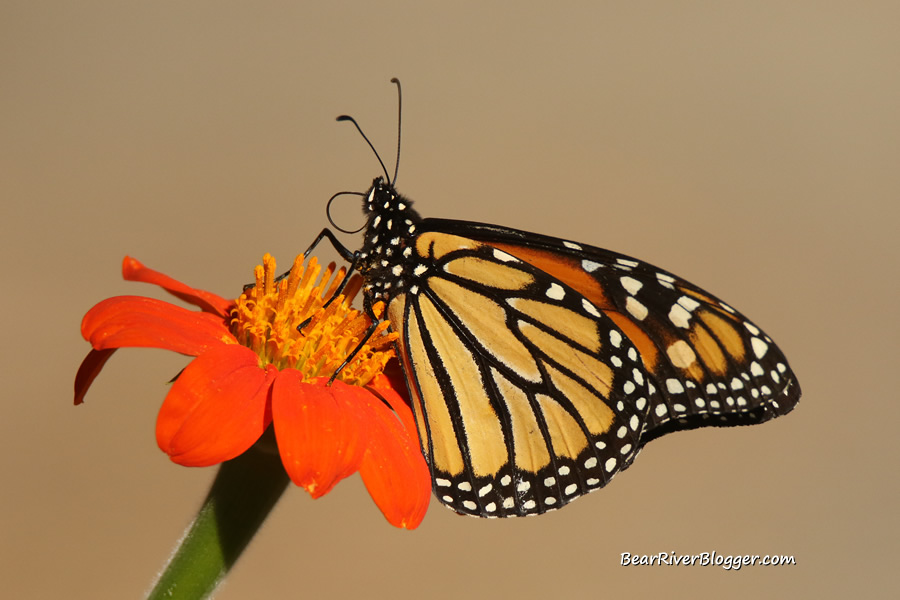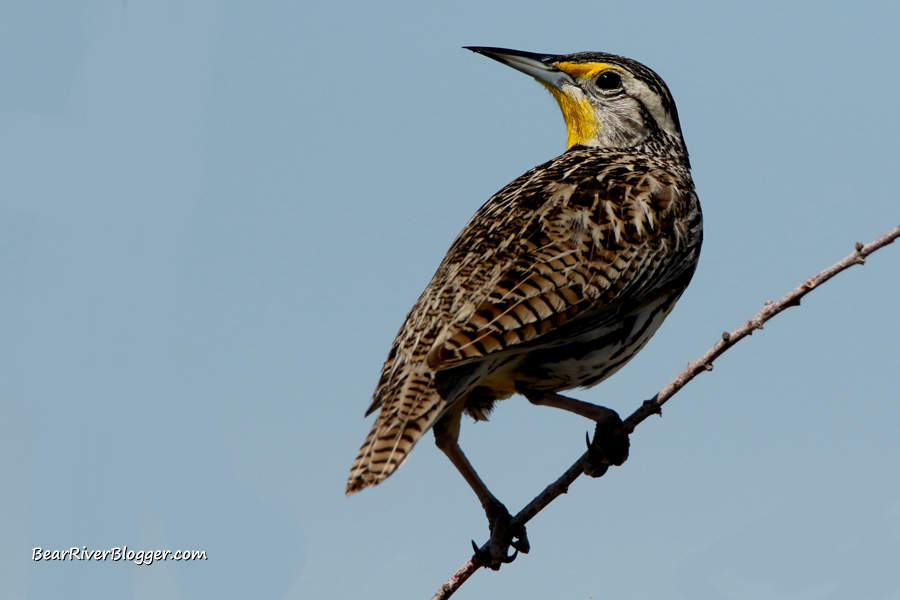Today was such a nice day I just had to get out and take advantage of the sun and warm temperature on a nature walk somewhere.
And on days like this, there is only one rule to follow, there will be no photographing from the vehicle today, mind you.
It’s all on foot, as it should be in nature at least once in a while that is.
And can you blame me?
It was a spring day built solely for nature nerds like myself.
Admittedly, the nature walk actually started out as a hike looking for great horned owls at Farmington Bay but I ended up seeing all kinds of creatures, including one of my favorite butterflies basking in the sun, the mourning cloak, so it took a lot of unexpected twists and turns along the way.
Each spring, when the temperature reaches the mid-50s and higher for a few days, many early emerging species of butterflies are almost always found to be on the wing here in northern Utah.
Today was certainly no exception, and while on the Farmington Bay nature trail numerous types of butterflies and I were constantly crossing paths along the entire route.
One butterfly, the mourning cloak I just mentioned, gave me quite a bit of time to photograph as well as make a short YouTube video about an interesting aspect pertaining to butterflies.
(Mourning Cloak Butterfly Basking In The Sun.
Don’t forget to subscribe to our Bear River Blogger YouTube channel for short nature clips such as this as well as periodic updates about the Bear River Migratory Bird Refuge.)
All Butterflies are essentially cold-blooded creatures and are what is referred to as ectothermic, meaning their bodies don’t produce heat so they need warmth from an outside source like the sun to help raise their metabolism and warm up their flight muscles so they can function.
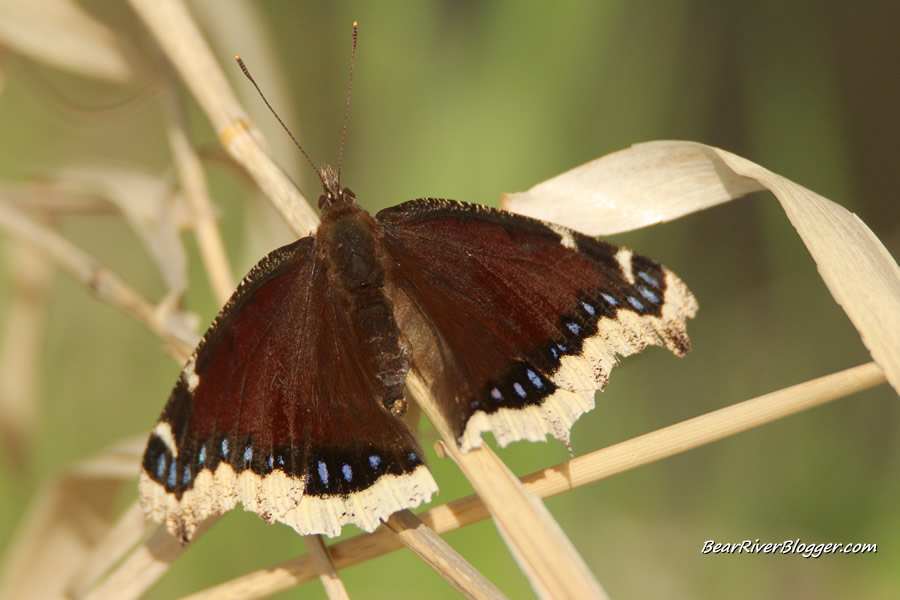
On days like today where the temperature was just barely warm enough for butterflies to be out and about, a butterfly oftentimes needs to sit and bask in the sunlight for a bit to soak up the sun’s energy to help warm up their body and flight muscles a bit so they can fly.
The mourning cloak I came across today at Farmington Bay reminded me of why we often see butterflies sitting with their wings outstretched facing the sun for short periods of time.
They are essentially soaking up the warmth from the sunlight to help raise their body temperature and metabolism so they can go about their day finding a food source, a mate, and lay the next generation of eggs.
The mourning cloak I found today was in an area where there was lots of shade and the temperature was a bit cooler than it was in the open areas which is why I’m sure it had to land several times to bask in the sunlight for the short time I was there photographing it.
Many other cold-blooded creatures such as garden snakes and turtles, both of which I saw sunning themselves today at Farmington Bay, will also bask in the sun to raise their body temperature and metabolism so this phenomenon is not just a butterfly thing but a function of other cold-blood animals as well.
So next time you see a butterfly sitting in the sun there is a good chance it might be warming itself up from the sun’s rays, especially early in the day after a cold night where butterflies essentially hibernate for the night until the air is warm enough to “wake them up” again for the day.
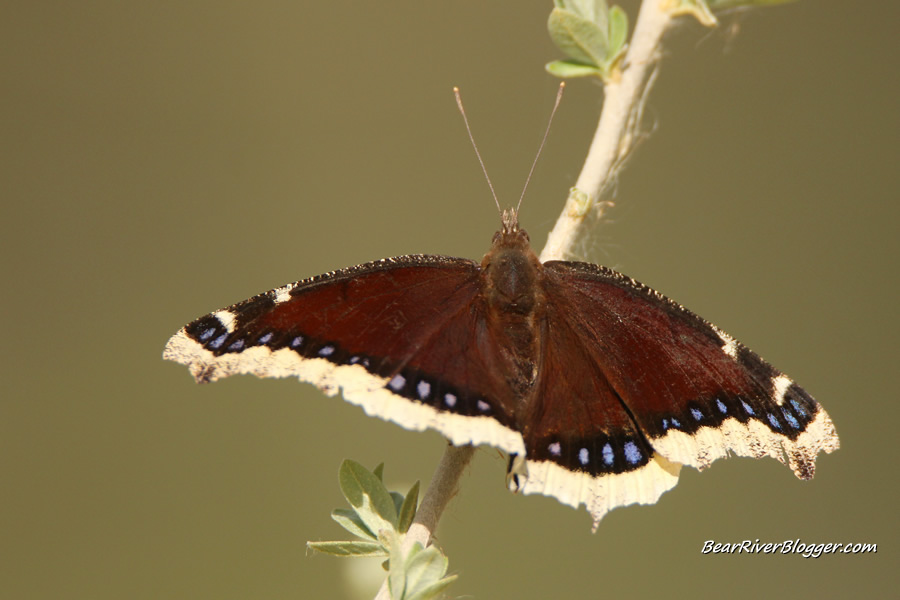
This is why you don’t see butterflies on cold mornings but can later in the day when the temperature has warmed up enough for the butterflies to be active again.
It’s also why you can see butterflies out and about in February on unseasonably warm days like we have had this year.
I have seen butterflies on the wing as early as late February and it is due to a warm stretch of weather that brings the butterflies out of hibernation despite it being too early in the year for any nectar or host plants to be growing.
It’s a strange thing to see butterflies one day and snow the next but that is how it can be when we get warm stretches of weather very early in the year and the butterflies respond to the rise in temperature like that.
Butterfly T-shirts
Butterfly T-shirt, available in a variety of colors and styles. Visit our online store for more information or to make a purchase, and use coupon code save20 for 20% off all our products for a limited time.
Every purchase you make helps keep this website going and we appreciate your support for our time and effort in blogging about nature on and off of the Bear River Migratory Bird Refuge.

Subscribe To Bear River Blogger
Don’t forget to head on over to our subscribe page and sign up for email notifications for future blog posts.
We appreciate your support for our website and also offer you to follow us on our YouTube channel where we occasionally upload short videos updates about the Bear River Migratory Bird Refuge and small nature clips when we can capture them on film.

